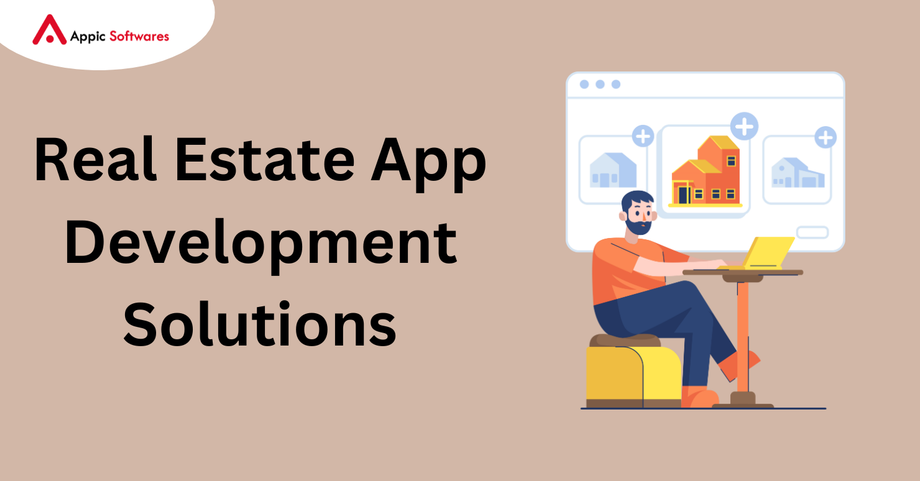The real estate industry is undergoing a digital transformation, fueled by the growing demand for convenience and mobile-first experiences. Real estate app development solutions are at the forefront of this revolution, empowering agents, brokers, and consumers with powerful tools to navigate the complex world of buying, selling, and managing properties.
This comprehensive guide dives deep into the world of real estate app development, exploring every aspect from planning and ideation to features, design, and deployment:
1. Understanding Your Real Estate Niche
The real estate market caters to various needs. Identifying your niche helps tailor your app to a specific user group:
- For Buyers & Sellers: Focus on property search, listings, virtual tours, mortgage calculators, and communication tools.
- For Agents & Brokers: Prioritize features like lead management, CRM integration, property marketing tools, and virtual staging functionalities.
- For Property Managers: Emphasize features for rent collection, maintenance requests, tenant communication, and document management.
2. Analyzing the Competition
Research existing real estate apps in your niche. Analyze their strengths, weaknesses, and unique selling propositions (USPs). Here are some valuable insights to glean from your competitors:
- Popular features: Identify features that resonate with users and consider incorporating them (with a unique twist) into your app.
- Missing functionalities: Look for areas where existing apps fall short. This could be an opportunity to differentiate your app by offering a unique solution.
- User reviews: Read user reviews of popular real estate apps to understand user pain points and desired improvements.
3. Defining Your App's Core Features
The core functionalities of your real estate app depend on your chosen niche, but some universal features are essential:
- Advanced property search: Enable users to search for properties based on specific criteria like location, price range, property type, amenities, and keywords.
- Detailed property listings: Provide comprehensive listings with high-quality photos, virtual tours (if available), detailed descriptions, and key property details.
- Interactive maps: Integrate interactive maps that allow users to visualize property locations and explore surrounding areas.
- Communication tools: Facilitate communication between users and agents/brokers through features like chat, messaging, and in-app calling.
- Push notifications: Send real-time updates about new property listings, price changes, appointment reminders, and other relevant information.
4. Designing a User-Centric Interface
A user-friendly interface is crucial for a successful real estate app. Here are some design considerations to keep in mind:
- Intuitive navigation: The app's navigation should be clear and intuitive, allowing users to find what they need quickly and easily.
- High-quality visuals: Use high-resolution photos, virtual tours, and property videos to showcase properties in an engaging way.
- Interactive elements: Incorporate interactive elements like map filters, property comparisons, and wishlist functionalities to enhance the user experience.
- Accessibility: Ensure your app is accessible to all users by following accessibility guidelines and best practices.
5. Leveraging Advanced Technologies
Modern real estate app development solutions can integrate cutting-edge technologies to provide a richer user experience:
- Augmented Reality (AR): Implement AR features for virtual property tours that allow users to virtually "walk through" properties remotely.
- Artificial intelligence (AI): Utilize AI for personalized recommendations, property valuation estimates, and automated property matching based on user preferences.
- Blockchain technology: Explore the potential of blockchain for secure property data management and streamlined transaction processes (depending on regional regulations).
6. Security Considerations for Real Estate Apps
Real estate transactions often involve sensitive financial information. Here are some crucial security considerations:
- Data encryption: Encrypt all user data, including property details and financial information, to protect it from unauthorized access.
- Secure authentication: Implement strong user authentication methods like two-factor authentication and secure login protocols.
- Compliance with regulations: Ensure your app complies with all relevant data privacy regulations and local real estate licensing requirements.
7. Development Considerations and Project Management
Building a robust real estate app requires careful planning and development expertise. Here are some key considerations:
- Choosing the right development platform: Popular options include native development (iOS and Android), cross-platform frameworks like Flutter or React Native, or low-code/no-code development platforms.
- API integrations: Integrate with third-party APIs from property listing services, mapping platforms, financial institutions (if applicable), and CRM systems (for agents and brokers).
- Project management strategies: Implement agile development methodologies like Scrum or Kanban to ensure efficient project management, clear communication, and iterative development.

